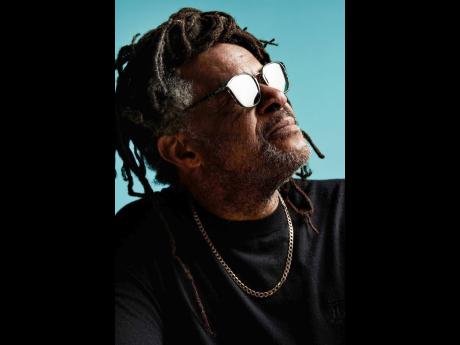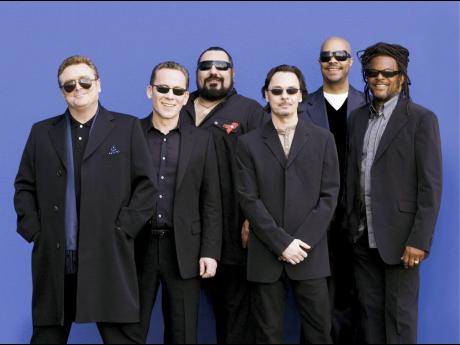Grange, Eddy Grant pay tribute to Astro of Grammy-nominated UB40
Minister of Culture, Gender, Entertainment and Sport Olivia ‘Babsy’ Grange, as well as internationally acclaimed musician Eddy Grant, has paid tribute to foundation member of pioneering reggae band UB40, Terence ‘Astro’ Wilson, who passed away last Saturday after what is described as “a very short illness”.
“Very sadly, Astro has now joined the list of illustrious reggae singers and musicians who have left us recently. He was an outstanding member of UB40 who contributed greatly to the heights attained by the group. I extend condolences to his family, relatives and friends and to his former band members. Rest in peace Astro,” the minister’s statement on social media read.
Guyanese-British singer, songwriter and multi-instrumentalist, Eddy Grant, posted a lengthy tribute to Wilson on social media, stating in part that “the world which loved the music of which he was an integral part will feel the loss, along with his close family and personal friends”.
He added, “Life lost at 64 can be seen, when looking back, as in his case, as having been very productive. Yes, the band Astro helped to form named UB40 achieved tremendous success in the music business and made its mark in terms of societal equilibrium. He was a magnet in the line-up of UB40 when on stage with his totally laid-back posture and that look that said: ‘Are you having a good time, mate? Cos, I am.’ Life can be stressful when one has to choose between close friends. So, let there be peace in the valley, as we pay our respects to our fallen brother. Rest In Peace, ‘Astro’. Ringbang For Life.”
UB40, which formed in Birmingham, England, in the late 1970s, named themselves after the then government’s Unemployment Benefit, Form 40. The original group featured musicians from Jamaica, England and Ireland. Over the next 30 years, UB40, which was known for its reggae versions of hit pop songs, enjoyed three UK number one hits, including Red Red Wine and (I Can’t Help) Falling In Love, and sold more than 70 million records. They were nominated for the Grammy Award for Best Reggae Album four times.
Wilson, who joined UB40 in 1979, was the toaster for the band. In 2008, frontman and co-founder Campbell left and formed another group with keyboard player Mickey Virtue. Wilson joined them in 2013, and they toured under the name UB40. Reports are that they performed at some concerts this year and had a tour lined up for 2022.
“We are absolutely devastated and completely heartbroken to have to tell you that our beloved Astro has today passed away after a very short illness. The world will never be the same without him,” Ali Campbell wrote on Twitter.
The current edition of UB40 also reacted to Wilson’s death.
“We have heard tonight, the sad news that ex-member of UB40, Terence Wilson, better known as Astro, has passed away after a short illness. Our sincere condolences to his family,” they stated.
British newspaper, The Guardian, interviewed Wilson in May this year. He spoke about the Black Lives Matter movement in the United States, his own experience of racism in Britain and the band “becoming the voice of working-class people’s dissatisfaction with political and global issues after they formed in 1978”.
“We found it harder to write love songs than militant lyrics, because it was a lot easier to write about stuff you had witnessed or read about. It seemed natural to us,” he said.
According to thegrio.com, “UB40 noted that their music brought the group a lot of scrutiny in their youth, including from MI5, the UK’s domestic counter-intelligence and security agency. Drummer Jimmy Brown said, “We thought, ‘Haven’t they got criminals to catch?’ We were just a bunch of potheads, smoking weed and playing music. We weren’t planning the revolution, but if the revolution happened, we knew what side we were going to be on.”


